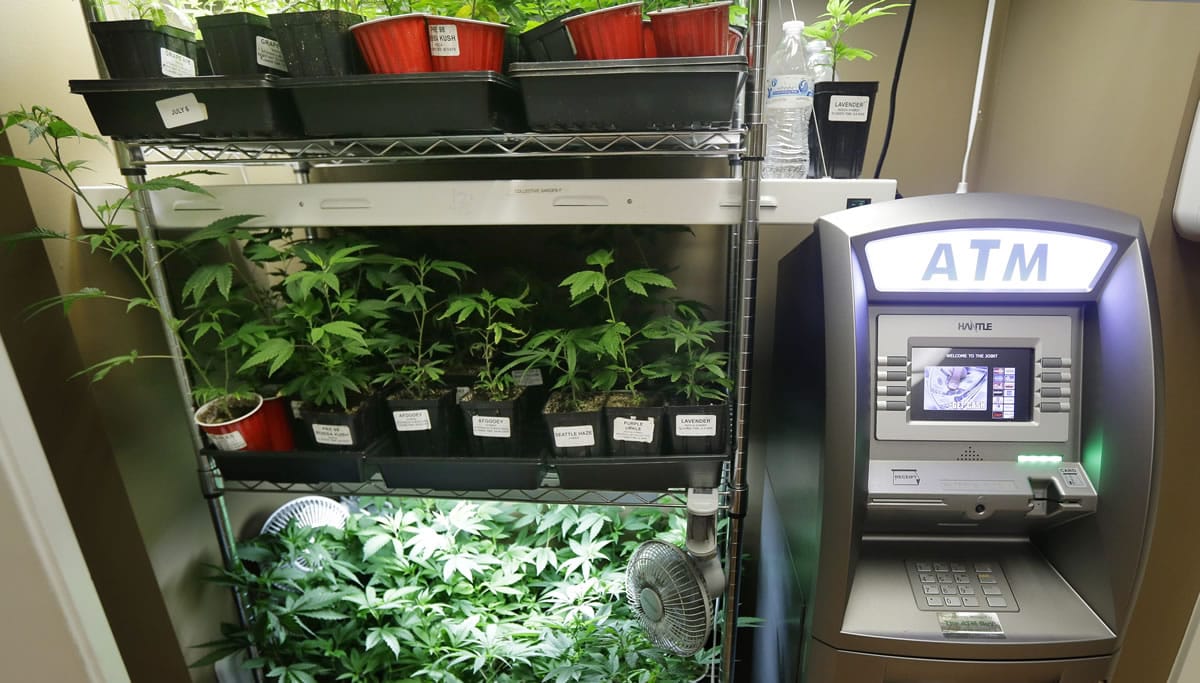SEATTLE — The state Liquor Control Board has recommended that home growing still be allowed for medical-marijuana patients, reversing an earlier proposal that inflamed activists and patients.
Board members, who are charged with implementing the state’s new recreational-pot system, want to allow patients or designated caregivers to grow up to six plants at a time — three flowering and three nonflowering.
But some say that’s not enough. Ryan Day, who wants to grow a nonpsychoactive strain for his son with severe epilepsy, said he may need at least double the six plants for a reliable supply.
In October, staff from the Liquor Control Board and two other state agencies called for an end to medical home growing. That proposal drew more negative comments than any other by the three agencies.
“Enough people in the medical-marijuana community convinced us. We listened to them,” said Sharon Foster, Liquor Control Board chair.
Those who called for retaining home grows also included Alison Holcomb, chief author of the state’s legal-weed law, and Sen. Jeanne Kohl-Welles, D-Seattle, the Legislature’s premier supporter of medical marijuana.
The state’s law now allows patients to grow 15 plants. But state agencies called for eliminating home grows because those were based on providing patients with a 60-day supply of marijuana.
The state agencies reasoned that with a new recreational system coming next year, patients could likely find a reliable supply and didn’t need to have a 60-day supply on hand.
The board was asked by lawmakers to come up with recommendations as the state tries to reconcile the highly regulated recreational system with the largely unregulated medical system.
Foster said the board largely accepted the other staff recommendations, including creating a mandatory state registry of patients.
Kari Boiter, a patient and advocate, gave the recommendations a mixed review.
State coordinator for Americans for Safe Access, the largest national medical-marijuana group, Boiter praised the Liquor Control Board for retaining home grows. She said the six-plant limit is a “start, but it’s not where we need to be for patients.”
She prefers that the state stick with the current 60-day supply, saying it was the result of a deliberate public process. Some patients barely get by on 15 plants, she said, and some are using only nonpsychoactive forms of marijuana.
Day said he’s heard of a legislative proposal that would allow 15 plants if they are strains low in psychoactive chemicals and high in cannabidiol, or CBD, which is believed to have therapeutic qualities. “We’ll see if that pans out,” he said.
Like Holcomb, Boiter also lauded the board for maintaining an affirmative defense for patients. Such a defense doesn’t stop a patient from being arrested or prosecuted but does allows them to make a medical-necessity argument in court.
Boiter called it a keystone of the medical system approved by voters.
As for other recommendations, which would dramatically change aspects of the medical system, she said, “Let’s integrate the two, not eliminate one to make the other work.”
She noted that some medical advocates have wanted regulations. They supported a bill two years ago, SB 5073, that would have regulated the medical system, but former Gov. Chris Gregoire vetoed most of it.
“They say we’re the untaxed Wild West,” Boiter said. “Then let’s find a way to regulate and license us. It’s not our fault the governor vetoed 5073.”



